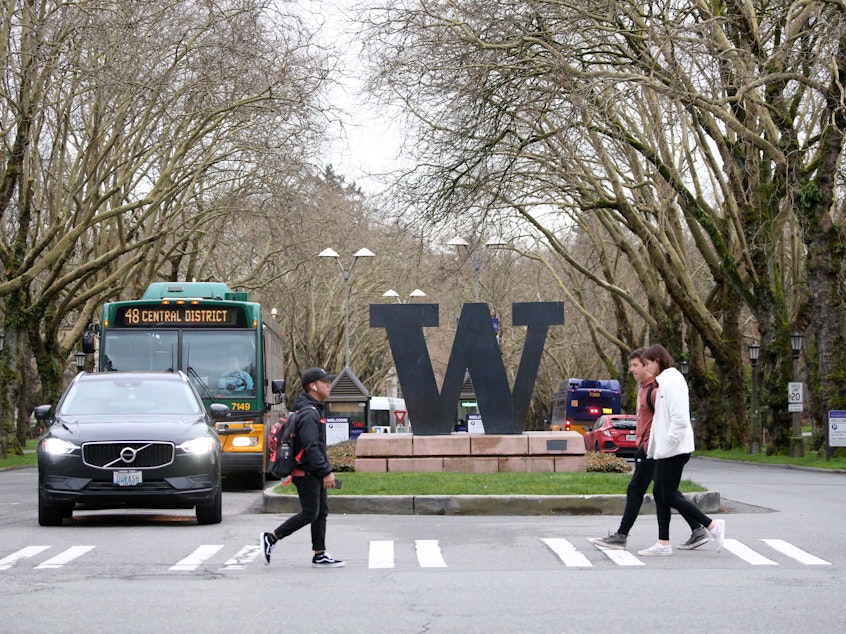Black UW police officers file claims against the university, alleging a racist work environment

Five Black police officers have filed damage claims totaling $8 million against the University of Washington Police Department over what they describe as a racist work environment. The claims are a required legal step that comes before a lawsuit is filed.
Journalist Mike Baker wrote about this story for the New York Times. KUOW’s Kim Malcolm asked him about how these officers say they were treated, both by their supervisors and fellow officers at the UW Police Department.
This interview has been edited for clarity.
Mike Baker: They describe a pretty entrenched problem of racism within the department: racial slurs or disparagement of Black people, and just a general hostility towards Black officers, but also people in the community who are also Black.
Kim Malcolm: You highlight your conversations with an officer by the name of Russell Ellis, who's been with the UW police since 2007. What did he tell you about what happened to him?
He basically says this is an unbearable level of racism. It's gotten to the point where he's having difficulty sleeping at night. This is just something where he's filled with dread about going to work. Just as an example, one of the cases he describes was from earlier this year. He talks about how one of the supervisors in the department, at the end of his night shift on campus, offers him an energy drink.
The supervisor, who is a sergeant, was laughing because the drink was flavored like watermelon. Ellis says that the supervisor made the comment, “I thought all you guys like watermelon and Popeye's chicken.” It was not the first time that he's dealt with comments that he saw as explicitly racist, but was another comment that sort of left him with a lot of stewing anger, stewing humiliation about what the culture is like there.
Sponsored
You've reached out to the University of Washington and the UW Police for this story. What did they tell you?
When the university got back, they said they were stunned by these allegations, that they weren't previously aware of them. The comment from one of the university spokespeople was that any one of these incidents would trigger an investigation, and potential disciplinary action, depending on what that investigation finds. The university says that they're actually going to be doing an investigation of their own, based on what was made in these filings.
The City of Seattle, lots of communities around western Washington, are debating all kinds of aspects around policing and how law enforcement interacts with the public. What larger questions does this story highlight for you?
One thing that the officers articulated, and I think really stands out here, is that Seattle is known as a very progressive city. The University of Washington [is] sort of a heartbeat in the city that pushes ideals of inclusion and diversity, and yet here on that campus, there's these allegations of a really extreme level of racism. Some of these officers were saying they hadn't seen this elsewhere. They didn't come from Arizona or Arkansas and see this level of racism in departments or other workplaces there. In some ways, they feel like it's worse here in Seattle than it is in places like the South where they've been before.
What happens next in this story?
Sponsored
With these filings, the legal notices here trigger a 60-day window where the university has a chance to settle the claims being made. After that 60-day window, there are potential lawsuits being filed that could trigger a much more protracted process here. Meanwhile, the university doesn't have a permanent police chief. After the police chief was reassigned in 2019, there have been only interim chiefs in place. They're still on the search for someone to come lead this department into the future.
Listen to the interview by clicking the play button above.
Editor's note: KUOW's license is owned by the University of Washington.



